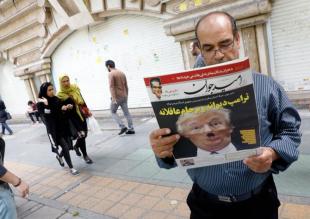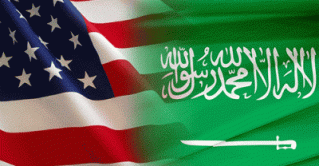DIGITAL ARTICLE | COMMENTARIES by: Debalina Ghoshal
Pakistan’s reluctance to join the Fissile Material Cut-off Treaty (FMCT) is one of the main reasons why the treaty’s progress has stalled.
The FMCT is an international arrangement still in its nascent stage, proposed to ban the production of highly enriched uranium (HEU) and plutonium: two main components of nuclear weapons.[i] Arms control experts view the treaty as an important tool for non- proliferation. Pakistan’s domestic instability, coupled with its growing nuclear weapon capabilities, raises concerns as there is also a fear that fissile materials could fall into the hands of non-state actors there[ii] and hence are prone to misuse. Thus, there is a need for a technology denial regime to prevent these non-state actors from accessing critical nuclear technologies.
This article draws on the reasons that Pakistan cites for not joining the treaty.
Pakistan’s nuclear capability
According to the Stockholm International Peace Research Institute (SIPRI), Pakistan’s HEU stockpile in 2012 was 3 tonnes. In addition, Pakistan’s plutonium production from the Khushab reactor coupled with the HEU stockpile could boost its annual warhead production. At present Pakistan is reported to possess 100kgs of weapons grade plutonium, which could produce at least 100 nuclear weapons. It has been estimated that by 2020 Islamabad could accumulate 450kg of plutonium from the Khushab Reactor, which could produce 90 weapons, and more than 2500kg of HEU that could produce 100 simple fission weapons.[iii]
Pakistan’s nuclear deterrent majorly relies on its missile delivery systems. Islamabad is working on a submarine launched version of the Babur cruise missile. Although the missiles are expected to be fitted in conventional submarines with air independent propulsion systems, in the near future Islamabad does desire to also develop ballistic missile submarines (SSBNs).
According to SIPRI, in 2013 Pakistan’s nuclear delivery systems comprised F-16A/B, Mirage V (fighter jets) and Abdali, Ghaznavi, Shaheen I, Ghauri, Shaheen II, Shaheen III, Babur and Ra’ad (ballistic and cruise missiles) and the 60km Nasr tactical nuclear capable ballistic missile. Such battlefield nuclear weapons need to be large in number in order to achieve the desired results to defeat India’s conventional prowess. In addition, Pakistan is also working on multiple independently targetable re-entry vehicles (MIRVs) for its ballistic missiles to evade enemy missile defense systems and strengthen its “first-use” policy. This would require several nuclear warheads for a strengthened deterrence posture.
Why Pakistan refuses to sign the FMCT?
There are several reasons why Pakistan refuses to accede to the treaty. Pakistani analysts such as Zafar Nawaz Jaspal view the FMCT as a mere non-proliferation measure and not a measure for nuclear disarmament.
Pakistan also opposes the treaty on the grounds that it would be difficult for Islamabad to “compromise on its fundamental security interests”.[iv] Pakistan also considers the deal to be a “thinly disguised attempt by outsiders to take away Pakistan’s nuclear deterrent”.
The National Command Authority (NCA) therefore, states “Pakistan will never accept discriminatory treatment and that it rejects any effort to undermine its strategic deterrence. Pakistan will not be a party to any approach that is prejudicial to its legitimate national security interests.”[v]
According to Air Cdre Khalid Iqbal, “banning production of fissile material without first capping its weapon related applications would only encourage clandestine production, thus feeding black market”. [vi]
Experts such as Shireen Mazari claim that the FMCT has been imposed on Pakistan in order to curb its development of material needed for deterrence against India’s rising nuclear power capabilities.
Pakistani analysts and policy making practitioners such as Ambassador Tariq Osman Hyder are of the view that “Pakistan’s strategic nuclear program based on credible minimum nuclear deterrence is essential to maintain peace and security in the region. It is not aimed at any country and is purely defensive and to deter any aggression or adventurism. Minimum deterrence is not static, and without entering into any arms race, has to evolve to meet and to counter emerging threats to Pakistan’s security.” [vii]
Pakistan’s adoption of the “first-use” policy in its nuclear doctrine implies that it would need a nuclear capability to strengthen this policy, and that would hinder Islamabad’s entry into FMCT. In addition, Pakistan’s tactical nuclear weapons would further complicate arms control measures and hinder its entry into the treaty. India’s conventional military superiority is another reason Pakistan uses to justify strengthening its nuclear deterrence to negate its conventional inferiority. Hence, nuclear weapons for Pakistan would not only be a deterrent against India’s nuclear weapons capability, but also a deterrence against New Delhi’s conventional superiority.
Pakistan also uses its nuclear weapons as a tool to instigate proxy wars in India. Nuclear weapons have acted as deterrence in the South Asian periphery, and Islamabad has operated covertly by instigating proxy wars in India. Therefore, nuclear weapons are not just an important tool for deterrence but also an important foreign policy tool. Thus, Islamabad would not want to compromise its nuclear deterrence capability by abiding by any such treaty that it feels is discriminatory.
Pakistan also fears that India’s ballistic missile defense (BMD) will “accentuate fears that an offensive pre-emptive strike could be undertaken behind the shield” for which Pakistan is likely to increase its missile numbers and enhance its survivability options[viii] to nullify the credibility of the Indian BMD.
Pakistan also views the Indo-US nuclear deal and the Nuclear Suppliers’ Group (NSG) waiver to India with great apprehension. This nuclear deal has become a crucial factor hindering Pakistan’s entry into the FMCT.
However, Pakistan’s reasons for not joining the treaty are not only confined to India. In 2013, there were reports that Saudi Arabia could avail itself of nuclear weapons from Pakistan should the need arise, as Pakistan’s nuclear weapons program was funded by Riyadh. It would be also hard to believe that Pakistan is not weary of Israel’s nuclear weapons capabilities. Pakistan’s newest Shaheen, the Shaheen 3 with a range of 2750kms, can strike targets in West Asia. In the 1980s and 1990s, Israel planned a raid on Pakistan’s nuclear facilities that later stalled. Therefore, the existential threat from Israel remains. According to Shyam Saran, post the 2011 US raids in Abbotabad to kill Osama Bin Laden, Pakistan has been apprehensive of US intentions in the global war on terror, drone attacks on its territory, and that it could wipe out Pakistan’s nuclear capability.
Pakistan also believes that the FMCT is discriminatory and will have a minimal effect on the nuclear deterrence posture of states like the United States and Russia, who already have large nuclear stockpiles. Hence, such a treaty would only affect states that are yet to develop a credible nuclear deterrent capability. Pakistan has suggested a Fissile Material Technology treaty to include existing stockpiles rather than a Fissile Material Cut-off Technology treaty. [ix]
Pakistan’s approach to FMCT would hence depend on its sufficiency to be able to deter its immediate neighbors in order to match their existing capabilities. It will only join the treaty when it believes it has reached nuclear sufficiency.
Debalina Ghoshal is an Independent Consultant specializing in nuclear, missile and missile defense issues.
[i] Annette Schaper, “A Treaty on the Cutoff of Fissile Material for Nuclear Weapons-What to Cover? How to Verify?”, PRIF Report, <http://www.hsfk.de/fileadmin/HSFK/hsfk_downloads/prif48.pdf>
[ii] Paul K. Kerr and Mary Bery Nikitin, “Pakistan’s Nuclear Weapons”, Federation of American Scientists, August 1, 2016,
[iii] Zia Mian, A.H.Nayyar and R.Rajaraman, “Exploring Uranium Resource Constraints on Fissile Material Production in Pakistan”, Science and Global Security, 2009,
[iv] J.C. Suresh quoted then acting Pakistani Ambassador, Raza Bashir Tarar, “Asia and the World: Pakistan Rock Firm Against New Nuclear Treaty”, Global Perspectives, July-August 2011,
[v] Pranab Dhal Samanta, “We will strengthen n-arsenal , says Pak, slams US for India nuclear deal”, The Indian Express, January 27, 2011,
[vi] Khalid Iqbal, “Pakistans upright stance on FMCT”, The Nation, October 17, 2011,
[vii] Tariq Osman Hyder, Concerns over Pakistan’s Nuclear Program, Perceptions and Reality, Pg.59
[viii] Maleeha Lodhi, n.iii
[ix] As recommended in “Challenges to Pakistan’s Nuclear Program and FMCT”, Institute of Policy Studies, January 19, 2012.
 English to re-enter Indonesian classrooms
English to re-enter Indonesian classrooms  New Delhi's real worry: Trump's unpredictability on Iran
New Delhi's real worry: Trump's unpredictability on Iran  Missile defense dilemma for Saudi Arabia
Missile defense dilemma for Saudi Arabia